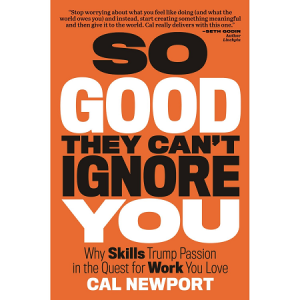June 23, 2013 Book Reviews, Career, Success
 Recently one of my colleagues got so inspired by two books she read, so that she decided to simply start giving them away. She was guided by the “Pay it forward” concept, which “is asking the beneficiary of a good deed to repay it to others instead of to the original benefactor” as per wiki. Basically, if I like books she bought for me (hard copies) and if I like the concept I can continue buying books for other people, so they can spread the ideas and books even more.
Recently one of my colleagues got so inspired by two books she read, so that she decided to simply start giving them away. She was guided by the “Pay it forward” concept, which “is asking the beneficiary of a good deed to repay it to others instead of to the original benefactor” as per wiki. Basically, if I like books she bought for me (hard copies) and if I like the concept I can continue buying books for other people, so they can spread the ideas and books even more.So far I read only one of two. The short one, called “So Good They Can’t Ignore You: Why Skills Trump Passion in the Quest for Work You Love” by Cal Newport. It doesn’t talk that much about giving things away, so you probably should wait until I write another review, but continue reading for something more closer to our working lives – to our careers.
“Be so good they can’t ignore you” is a quote from comedian Steve Martin that captures what is needed to build a working life you love.
Cal, the author, takes us though dozen of different examples of people who achieved success and who have failed. He starts his book with groundbreaking statement that following your passion could be an epic mistake. He says that since decades books on success tell to find something that is the most appealing to you and simply follow it, they tell you cannot achieve greatness without doing what you love. But many examples Cal brings to the table prove this being wrong. My vision and what Cal also says is that people simply don’t know what they want. They have to try things, but trying all the things around could just easily be waste of time. Lot of things require efforts and work until you really start taking adult steps in it and can do something meaningful, and even more – understand if you really like it or if it was just a play.
As opposite to passion mindset which focuses on what world can offer you, Cal says that you can armor craftsman mindset, which focuses on what you can offer the world, because “regardless of how you feel about your job right now, adopting the craftsman mindset will be the foundation on which you’ll build a compelling career”.
“ The career capital theory of great work […] provides the foundation for all of the ideas that follow it in this book. It claims that the key to work you love is not to follow your passion, but instead to get good at something rare and valuable, and then cash in the “career capital” this generates to acquire the traits that define great jobs. This requires that you approach work with a craftsman mindset and not a passion mindset. ”
Do you know about 10,000-Hour Rule? It says that excellence at performing a complex task requires a critical minimum level of practice. I think it is understandable that sometimes it also requires talent in addition and [EDIT] not every way of spending those hours adds up. Regardless here is my question: how many 10K hours do you have in your life? On normal pace it is close to 10 years. So doesn’t sound like we have capacity to try lots of things in the world and simultaneously be good at them.
At some point in time Cal convinces us that if you have enough career capital and some rare and valuable skills you can push it towards great achievements and this is much better choice than looking for mysterious passion. In the book he also shows how he made decisions and followed “rules” described. I wish him good luck.
As my personal note I would say that book indeed inspires to put more efforts into improving skills I have at the moment. I consider myself quite good in what I do now, but it would be a self-robbery not to continue developing skills and not trying to push them forward. Jumping to something completely else might destroy all I have, instead I’m advised to take little bets.
The book doesn’t take much time to read, thus for some additional inspiration I would definitely recommend it, unless you are now reading some stuff to be so good at what you do, so that they cannot ignore you!

codemore code
~~~~